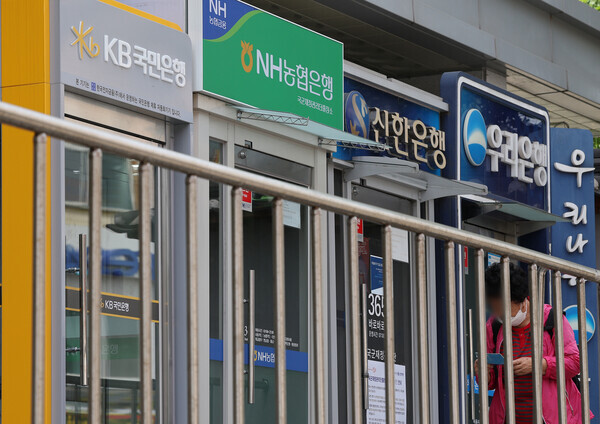
Seoul, South Korea – South Korea's credit card and savings bank delinquency rates have surged in the third quarter, indicating a growing strain on household finances. The increasing number of borrowers defaulting on loans, including household and small business loans, underscores the need for fundamental solutions to address the worsening economic situation for low-income households.
According to the third-quarter financial results of various financial groups, delinquency rates among credit card companies have risen significantly. The delinquency rate refers to the percentage of outstanding credit card payments, installment payments, revolving credit, and loans that are more than one month overdue.
Woori Card reported a delinquency rate of 1.78% at the end of the third quarter, up 0.56 percentage points from the same period last year. Hana Card's delinquency rate increased from 1.66% to 1.82%, while KB Kookmin Card's rate rose from 1.22% to 1.29%. Although Shinhan Card's delinquency rate decreased slightly from 1.35% to 1.33%, its 2-month delinquency transition rate increased from 0.40% to 0.41%. The 2-month delinquency transition rate is a leading indicator of the likelihood of borrowers becoming long-term delinquents.
Savings banks are also facing a surge in delinquency rates. The delinquency rate for savings banks jumped from 6.55% at the end of last year to 8.36% in June and is estimated to have reached the mid-8% range by the end of September.
The proportion of borrowers who have defaulted on household and small business loans is also on the rise. The Korea Institute of Finance reported that as of the end of June, the delinquency rate for household loans with more than 30 days of overdue payments was 2.0%, up 0.3 percentage points from a year earlier. For small business loans, the delinquency rate increased by 0.8 percentage points to 2.3% over the same period.
Despite the rising delinquency rates, demand for loans continues to grow. In September, outstanding loans from credit card and capital companies, including credit cards, cash advances, and personal loans, increased by 900 billion won, exceeding the increases in July (800 billion won) and August (700 billion won). In particular, the outstanding balance of credit card loans at nine major credit card companies reached a record high of 42.22 trillion won in September.
The Korea Institute of Finance expects the debt service ratio (DSR) regulations to help stabilize household debt in the future. However, the institute also warned that the debt repayment capacity of vulnerable households remains weak. It recommended that the government implement comprehensive measures to improve the debt and income conditions of vulnerable households by linking financial, employment, and welfare policies.
[Copyright (c) Global Economic Times. All Rights Reserved.]




























